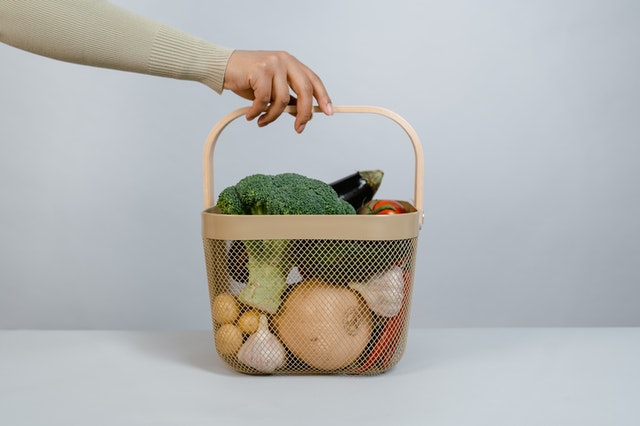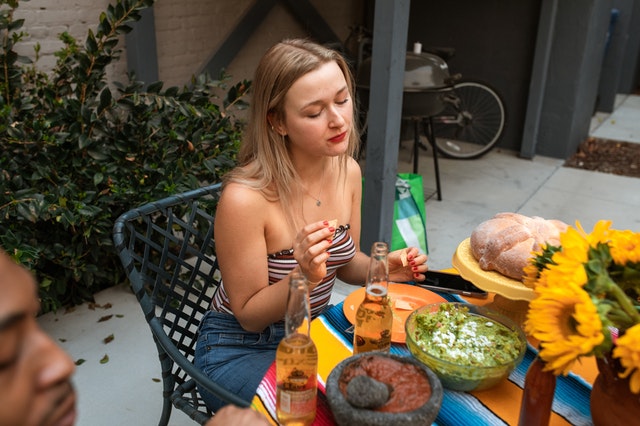Welcome to our 7-Day No-Sugar High-Protein Anti-Inflammatory Meal Plan! This meal plan is designed to help you reduce inflammation while providing ample protein to support your overall health and well-being. Inflammation is a natural response by the body to injury or infection, but chronic inflammation can negatively affect our health. By following this anti inflammatory diet meal plan, you’ll nourish your body with nutrient-dense foods that promote healing and reduce inflammation, all while avoiding added sugars. Get ready to enjoy delicious, satisfying meals that will leave you feeling energized and vibrant!
Day 1:
Breakfast: Scrambled eggs with spinach and mushrooms.
Lunch: Grilled chicken breast salad with mixed greens, cherry tomatoes, cucumber, and avocado.
Snack: Greek yogurt with blueberries and a sprinkle of chia seeds.
Dinner: Baked salmon with roasted quinoa and asparagus.
Conclusion: Day 1 of our meal plan sets the tone for a week of nourishing, anti-inflammatory meals. By starting the day with protein rich scrambled eggs and incorporating nutrient-dense foods like spinach, mushrooms, chicken breast, and salmon throughout the day, you’re providing your body the building blocks it needs for optimal health.
Day 2:
Breakfast: Overnight oats made with almond milk, sliced almonds, and fresh berries.
Lunch: Grilled tofu with steamed broccoli and brown rice.
Snack: Carrot sticks with hummus.
Dinner: Marinara sauce with zucchini noodles with turkey meatballs.
Conclusion: Day 2 focuses on plant-based high protein foods sources like tofu and legumes, which are excellent options for reducing inflammation. Including colorful fruits and vegetables provides essential vitamins and antioxidants that gives a healthy immune system and help fight inflammation.
Day 3:
Breakfast: Omelette with spinach and feta and sliced tomatoes on the side.
Lunch: Quinoa salad with grilled shrimp, bell peppers, cucumber, and lemon dressing.
Snack: Mixed nuts and seeds.
Dinner: Grilled chicken with roasted sweet potatoes and steamed broccoli.
Conclusion: On Day 3, we prioritize lean protein sources such as shrimp and chicken and nutrient-dense carbohydrates like quinoa and sweet potatoes. The variety of colorful vegetables ensures a wide range of anti-inflammatory compounds and a satisfying array of flavors and textures.
Day 4:
Breakfast: Smoothie of unsweetened almond milk, spinach, banana, and almond butter.
Lunch: Lentil soup with a side of mixed greens and lemon vinaigrette.
Snack: Sliced cucumbers with tahini dip.
Dinner: Baked cod with sautéed kale and quinoa.
Conclusion: Day 4 incorporates legumes and leafy greens, which are rich in anti-inflammatory properties. The smoothie packed with leafy greens and healthy fats refreshes the day, while the lentil soup and baked cod offer a hearty and nutritious dinner option.
Day 5:
Breakfast: Scrambled egg whites with roasted bell peppers and whole-grain toast.
Lunch: Grilled chicken salad with mixed greens, strawberries, goat cheese, and balsamic vinaigrette.
Snack: Apple slices with almond butter.
Dinner: Brown rice and tofu stir-fried with a variety of vegetables.
Conclusion: Day 5 emphasizes egg whites, lean chicken, and tofu as high-quality protein sources while including colorful fruits and vegetables add an anti-inflammatory boost. The apple slices with almond butter make for a satisfying and nutritious snack.
Day 6:
Breakfast: Coconut milk-based chia seed pudding with fresh mango and coconut shreds on top.
Lunch: Quinoa and black bean stuffed bell peppers.
Snack: Celery sticks with almond butter.
Dinner: Roasted Brussels sprouts, cauliflower rice, and fish that has been grilled.
Conclusion: Day 6 introduces chia seeds, a plant based source of protein and omega-3 fatty acids, in the form of a delicious and filling chia seed pudding. The quinoa and black bean stuffed bell peppers provide a fiber-rich lunch, and the grilled salmon offers a dose of healthy fats to support overall health.
Day 7:
Breakfast: Vegetable omelet with a side of sliced avocado.
Lunch: Grilled chicken skewers with bell peppers, onions, and a side of quinoa.
Snack: Kale chips.
Dinner: Roasted sweet potatoes, steaming green beans, and baked turkey breast.
Conclusion: On the final day of our meal plan, we highlight the versatility of vegetables by incorporating them into an omelet, skewers, and sides. Including turkey breast adds another lean protein option, while the kale chips make for a crunchy and nutritious snack.
Conclusion
Following this plan, you’ve nourished your body with wholesome, anti-inflammatory foods and prioritized protein-rich options to support your overall health. Remember, reducing inflammation and maintaining a healthy lifestyle is ongoing, so make mindful food choices beyond these seven days. With a well-balanced diet and a focus on anti-inflammatory ingredients, you can support your body’s natural healing processes and enjoy long-term well-being.

